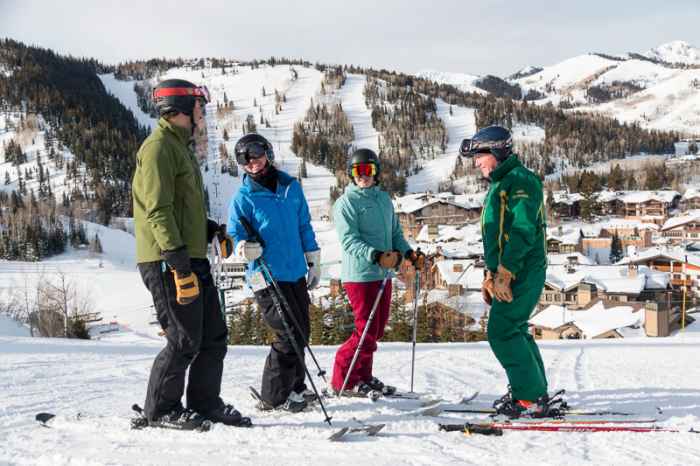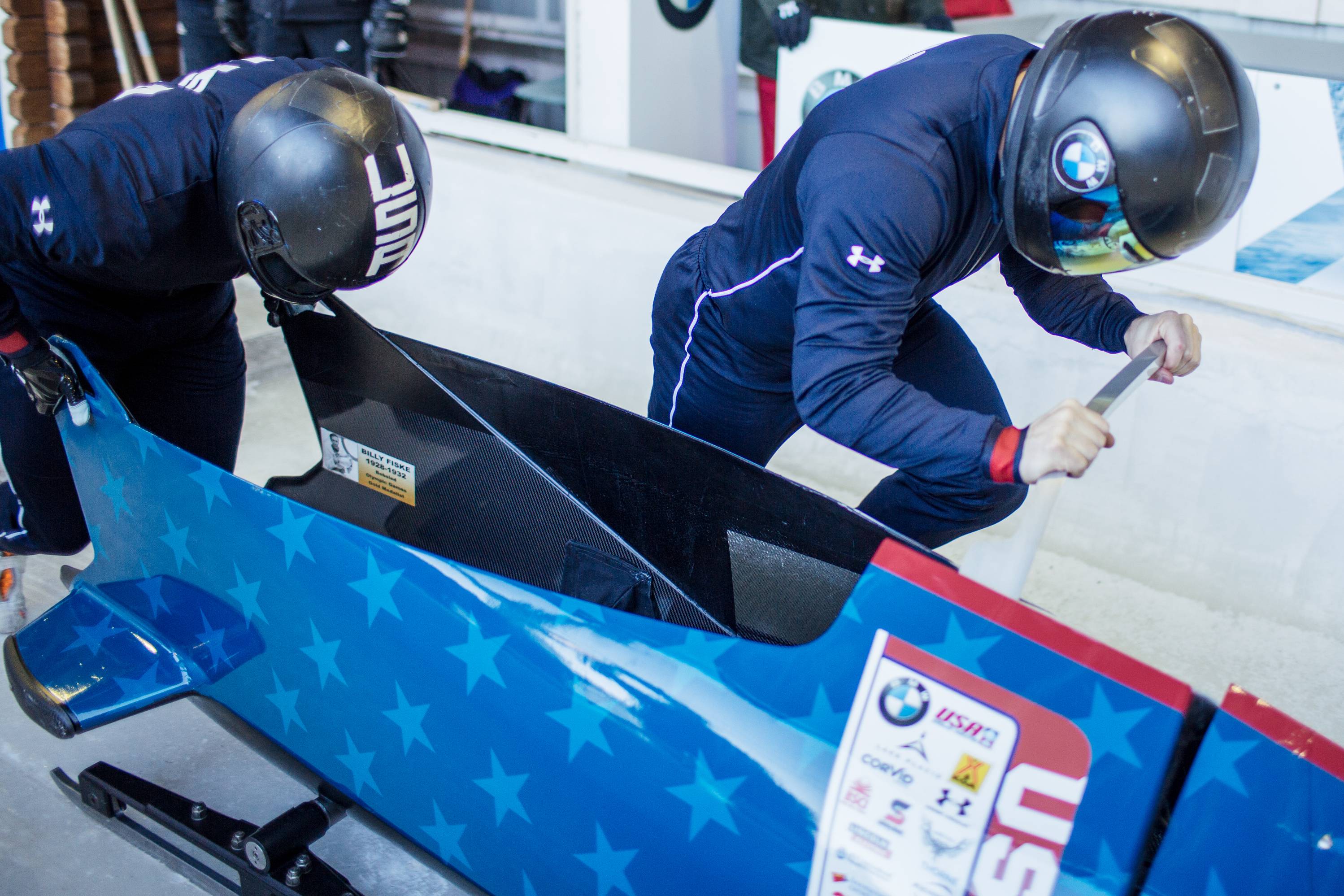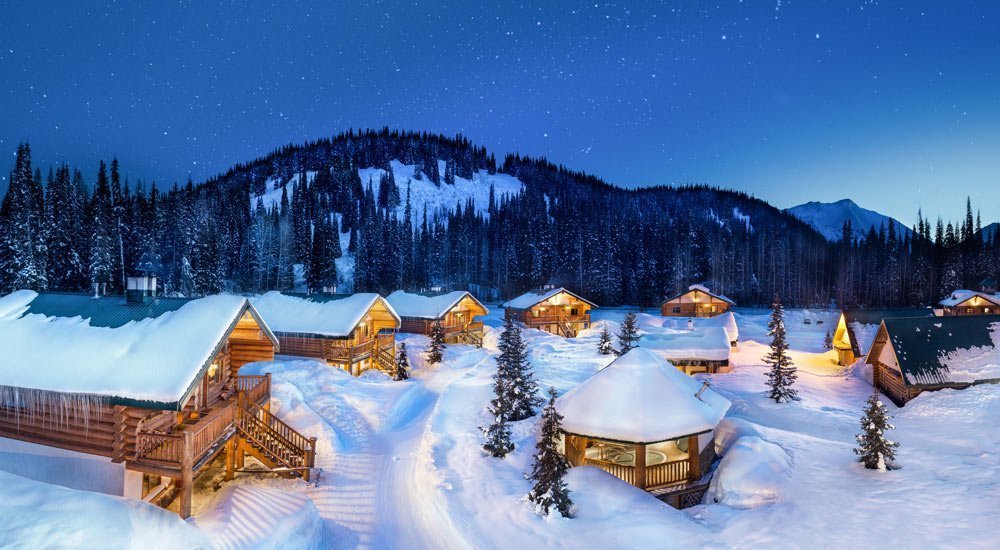
Alpine skiing has been a part in all of the Winter Olympics. It is a sport that requires technical skill and fearlessness, making it one of the most costly events to compete in.
Despite all the challenges, skiing still remains a popular sport. Alpine skiing is a discipline that takes practice and patience, while freestyle skiing may be more about aerials in midair.
At the local and international levels, athletes compete in the sport. However, the Winter Olympic Games is the best-known event in the sport. Six olympic alpine ski events are offered: downhill, giant slalom and super-G. There is also a mixed team parallel slalom.
Downhill
This is the longest alpine skiing event and the most difficult. Athletes are limited to skiing down one course. They must ski as quickly as possible to get to the bottom.
Slalom
The shortest and most technical of all the alpine skiing events, slalom has gates that are spaced closely together. This allows for precise turns and a fast race.

Each gate must be passed by competitors within the time limit or they will be disqualified. The slalom has two runs and eliminations will be based on the times.
Giant slalom
Similar to the slalom event, giant - also known as "super-", slalom has a two-run format that requires skiers and riders to pass through each gate at a specific time. Since its inclusion in the 1936 Winter Olympics program, this event has been contested at every Winter Olympics.
Super-G
Super-G, another speed event is a hybrid between downhill skiing and slalom. It has a number of gates that are designed to create turns more closely resembling those found in slalom, yet athletes can't miss any of these gates.
Combination
The combined downhill/slalom event is the first addition to the Olympics' alpine skiing events. The aggregate time of both runs determines the winner.
FIS was founded in 1924. It is the governing organization of the sport. It also acts as an umbrella organization for crosscountry skiing, ski jumping, snowboarding, and other related activities.
The World Championships are contested by its 136 member nations.

The Olympics saw an increase in alpine skiing events. However, it still remains an Alpine-dominated sport. Austria holds a commanding lead in total medals and gold medals.
There are 138 national federations competing in alpine skiing at World Championships. Many of these federations have strong programs. The top-ranked countries in the world, including those who have won gold and silver medals at the Olympics, are France, Switzerland, Norway, Russia, Austria, Italy, and Canada.
The United States has an impressive presence at the Olympics. American Mikaela Schiffrin, who earned her first gold medal at these Games in 2014, will likely win another. She's currently ranked number two in the world and has won four World Cup races in alpine skiing. Petra Vlhova (Slovakia) will likely join her in Beijing. She has been competing with Shiffrin over many years and is widely considered the best slalom-skier in the entire world.
FAQ
What can I put in my suitcase for travel?
You should always have at least two pairs of shoes. One pair for walking around the city and another pair for going on vacation.
Also, make sure to have enough clothing for both. When you fly, it is essential to bring enough clothing.
It's a good idea to bring along some clothes for longer stays. This will make it easier to go shopping for new outfits and won't make you feel uncomfortable.
Comfortable shoes are a must if you're going to be taking the train or bus. Also, if driving, bring extra tires.
You'll also need to pack plenty of toiletries such as soap, shampoo, toothpaste, deodorant, and moisturizer.
Finally, don't forget a flashlight, insect repellents, sunscreen, sunglasses, a hat and a first-aid kit.
Make sure you have all the items in one bag. This will save you time and space.
Also, be sure to take a small washcloth and towel. You'll be able to use them when you take a shower after a long day.
What should vacationers bring?
You must know what you want from your holiday. Not just packing clothes. You should also consider where you are going to be staying and for how long.
Consider what type of activities you'd like to take part in. If you plan to visit exotic locations, you might consider scuba diving. Participating in local festivals or events is a good idea if you're planning on staying somewhere for a longer time.
You should let the people who are going to be caring for you know if you have any medical issues.
Where can I store my luggage safely?
There are several different options available. One of the most popular options is to use airport lockers. They are generally located near security. These lockers cost $5-10 per day depending on their size.
You could also rent a storage facility. These units are commonly found outside shopping centers or large hotels. Some places offer discounts if multiple units are rented together. Prices can vary.
A third option is to hire a porter. A porter will transport your luggage from the carousel into your room. Each time he assists you, a small fee will be charged.
What snacks should I bring to the plane?
You have many options for snacks to take with you when flying. Consider bringing any foods you like while on the road.
If you love chocolate, for example, you might want some chocolates and other treats like biscuits and crisps.
If you're looking for something savory, perhaps you could try packing some cheese or crackers.
It is also important to consider the type of beverages you'd like to bring onboard. Perhaps you'd prefer something cold or hot?
No matter what type of snack you bring, ensure that they are packed securely and safely.
This will ensure that your belongings are safe during transport.
These are the things that you must remember when traveling.
When you travel, you'll find yourself in situations with little time to make decisions. So be prepared to improvise.
Sometimes you might find yourself stuck for days, weeks or months. If you've planned ahead, you'll have food, water, shelter, and a place to sleep. But if you haven't, you may have to improvise.
In these situations, you will probably need to rely upon what you know best. It means you have to be able to quickly make decisions based upon your experience and instinct.
Sometimes, however, you will not have any other choice. There are many situations where you might be left without cell or gas service, or even robbed. In those situations, you'll have to adapt quickly to whatever situation presents itself.
The key to success is to stay calm, remain focused and act decisively. Don't panic. Instead, be calm and focus on what you can do.
You can choose which direction you want to go if you're lost among the woods. You can also eat berries and mushrooms if you feel hungry. If you're thirsty, you can drink rainwater or melt snow.
Rest if your tired. It's okay to bundle up if it is cold. If you get wet, you can put on clothes. Whatever your choice, staying positive will help you feel better.
Statistics
- You can use compression sacs or cubes to reduce the volume of your clothes by up to 80%—this is especially convenient for bulky items such as sweaters and jackets. (eaglecreek.com)
- Between the ages of 11 and 13, kids, or tweens, will likely want some autonomy but also need boundaries. (travelandleisure.com)
- Case in point: the private island of Ilha Caldeira, less than seven miles off the coast as part of the Primeiras and Segundas Archipelago, is located within the marine-protected area with 20 percent of the country's intact living coral. (travelandleisure.com)
- No Checked Bags: No Alcoholic beverages with more than 70% alcohol (over 140 proof), including grain alcohol and 151 proof rum. (tsa.gov)
- They're also likely to offer babysitting services, in case you'd like to have dinner one night after 7 p.m. (travelandleisure.com)
External Links
How To
Which are the best travel tips and tricks for beginners?
Although traveling can be an exciting experience, there are many things you need to avoid to ensure a safe trip.
These are some tips to help plan your next vacation.
-
Get your bookings in early. The prices will be lower if you book early. You can also save money by not taking advantage of last-minute deals offered to you by hotels or airlines.
-
Stay-at-budget accommodations. The best value for money is found in the cheapest hotels. They are typically located near shopping centers and public transportation.
-
Don't overpack. Pack light. Keep room for souvenirs. Wear clothes that fit well, and don't wrinkle easily.
-
Be sensible. If you're traveling alone, don't walk around late at night. Avoid dark neighborhoods or areas that are prone to crime.
-
Take precautions against theft. Keep valuables safe from prying eyes. Don't leave anything valuable behind when you go swimming.
-
Take care with your cash. Thieves often target tourists in foreign cities. Keep your money away from prying eyes and only use ATMs at banks or protected facilities.
-
You need to know what you are doing. Be sure to learn how to use public transport in order not only do you need to book a hotel but also how to get there. You can find out more about popular attractions, restaurants, or other sights.
-
Safety is important. Before you go, find out about the local laws, customs and culture.
-
Have fun. Have fun, regardless of what happens. It's well worth it.